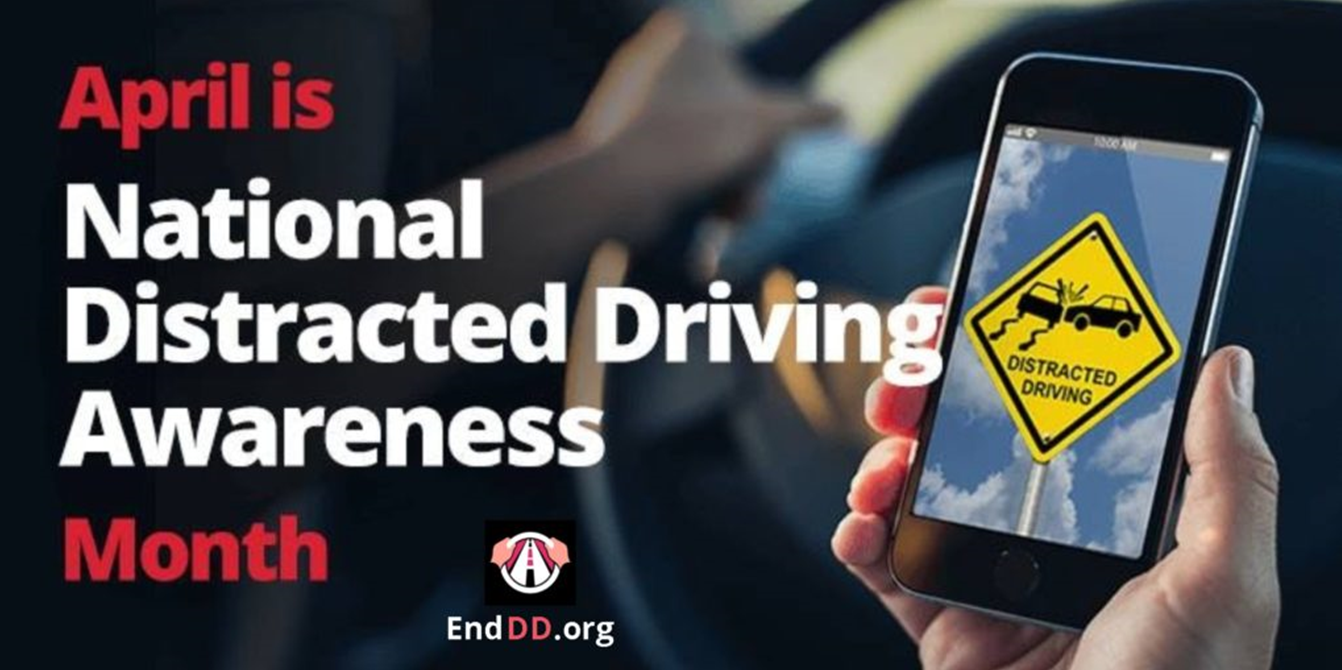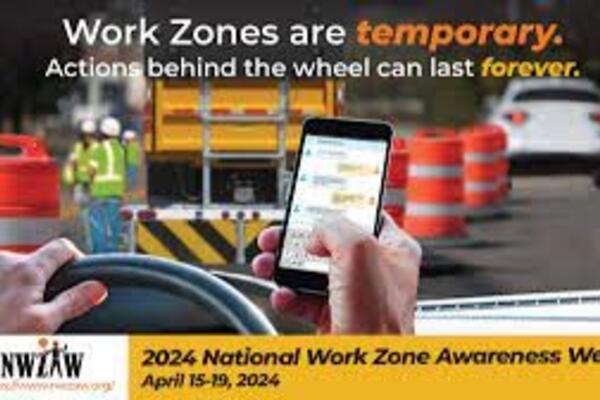April is Distracted Driving Awareness Month
Did you know that conversing on a cell phone while driving can cause your brain to miss up to half of your surroundings? Shockingly, research reveals that drivers engaged in phone conversations exhibit slower reaction times than those with a blood alcohol content of .08. This month, it's imperative for motor carriers to reinforce the hazards of distracted driving to their drivers and underscore the regulations enforced by the Federal Motor Carrier Safety Administration (FMCSA).
Under these regulations, Commercial Motor Vehicle (CMV) operators are forbidden from texting or using hand-held mobile phones while driving. Violations can lead to fines, disqualifications, and adverse impacts on a motor carrier's or driver's Safety Management System (SMS) results. The rules explicitly prohibit activities such as texting, reaching for, or holding a mobile phone while driving, as well as dialing by pressing more than one button. CMV drivers can only use a hands-free phone within reach. Essentially, the rule prohibits unsafe interactions with devices while driving.
Sanctions for breaches include civil penalties of up to $2,750 for drivers and disqualification for repeat offenses. Motor carriers face penalties of up to $11,000 for violations and will see their SMS results affected. This month, it's crucial to remind drivers of the dangers of distracted driving.
Compliance with the rules is straightforward: No REACHING, No HOLDING, No DIALING, No TEXTING, No READING. Employers play a vital role in ensuring safe practices:
- Establish a clear policy stating that employees are not required to answer calls while driving, including calls initiated by the employer.
- Encourage employees to plan trips with breaks to safely return calls and messages.
- Implement policies that eliminate the need for texting while driving for work purposes.
- Remove any incentives that may encourage texting or talking while driving.
- Educate employees about state regulations and associated fines.
- Encourage employees to pledge against distracted driving.
- Designate company vehicles as distraction-free zones.
Access a complimentary cell phone policy kit from the National Safety Council by visiting:
For additional information on distracted driving visit the following websites:
National Work Zone Awareness Week April 15-19th
It's that season when our drivers encounter work zones. Each year, approximately 600 individuals lose their lives in roadway work zones, with about 90 workers succumbing to accidents, often involving vehicles entering marked-off construction areas. Eliminating distractions is crucial for drivers as they approach and navigate through these work zones.
National Work Zone Awareness Week (NWZAW) is an annual spring campaign that kicks off the construction season, urging safe driving through highway work zones and construction sites. The primary message is for drivers to exercise extra caution in these zones. For further information, please visit the links below:
Here are 10 tips for safely driving in work zones:
- ANTICIPATE THE UNEXPECTED! Be prepared for speed limit reductions, lane changes, and workers on or near the road.
- REDUCE SPEED! Speeding is a major cause of work zone accidents.
- AVOID TAILGATING! Maintain a safe distance between your vehicle and the one ahead to prevent rear-end collisions.
- KEEP A SAFE DISTANCE FROM CONSTRUCTION WORKERS AND EQUIPMENT.
- PAY ATTENTION TO SIGNS! Follow warning signs to navigate through the work zone safely.
- OBEY ROAD CREW FLAGGERS! Their directions carry the same authority as regulatory signs.
- STAY ALERT AND MINIMIZE DISTRACTIONS! Focus solely on the roadway and avoid distractions like changing radio stations or using cell phones.
- KEEP UP WITH TRAFFIC FLOW. Merge early to help maintain traffic flow and posted speeds.
- ALLOW SUFFICIENT TIME AND CHECK TRAFFIC INFORMATION. Expect delays and plan accordingly to reach your destination on time.
- BE PATIENT AND CALM. Remember, work zones aim to improve roads, and crew members are working for your benefit.
Most states offer a 511 Road condition app that you can download to your smart device for real-time traffic updates.
CVSA Unveils Safety Inspection Events for 2024
The Commercial Vehicle Safety Alliance (CVSA) has disclosed the schedules for its trio of significant truck inspection events throughout North America in 2024. CVSA, comprising safety officials from the commercial motor vehicle sector in the U.S., Canada, and Mexico, is a non-profit association.
International Roadcheck – May 14-16, 2024
During this 72-hour period, CVSA-certified inspectors will meticulously assess the safety and regulatory compliance of approximately 650,000 trucks, motorcoaches, and their operators across the United States. The likelihood of an individual truck or bus undergoing inspection is high. Even trucks enrolled in a weigh station bypass program, such as PrePass, will undergo scrutiny.
While inspectors during Roadcheck will thoroughly examine all safety and compliance aspects for both equipment and drivers, this year's emphasis will be on two specific areas. Regarding drivers, inspectors will concentrate on the usage or presence of controlled substances and alcohol. Inspections will involve scrutiny for physical and behavioral indicators of controlled substances and alcohol, including querying the Drug and Alcohol Clearinghouse.
On the vehicle maintenance front, the 2024 Roadcheck will prioritize tractor protection and anti-bleed back systems. A commercial motor vehicle's tractor protection system encompasses a tractor protection valve, trailer supply valve, and anti-bleed back valve. All valves should undergo proper testing during both driver trip inspections and roadside inspections conducted by inspectors.
Operation Safe Driver Week – July 7-13, 2024
Operation Safe Driver Week conveys the message that all drivers on the road bear personal responsibility for the safety of others. During this week, commercial vehicle law enforcement expands its focus beyond truck and bus drivers to include drivers of passenger vehicles. Drivers of all types of vehicles will be targeted for high-risk driving behaviors, including speeding, distracted driving, drunk driving, and failure to wear a seatbelt.
Brake Safety Week – August 25-31, 2024
As part of CVSA's Operation Airbrake Program, Brake Safety Week and an unannounced one-day brake safety enforcement event will entail inspectors conducting evaluations of the brake systems on large trucks and buses. Brake-related violations are among the most commonly cited out-of-service violations during inspections for motor carriers.









